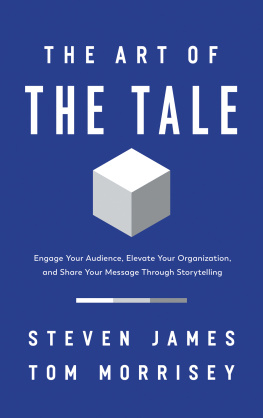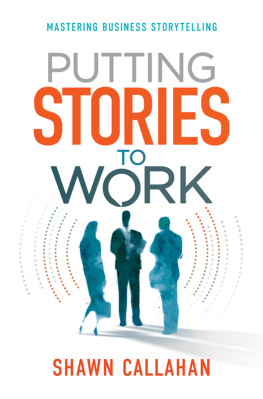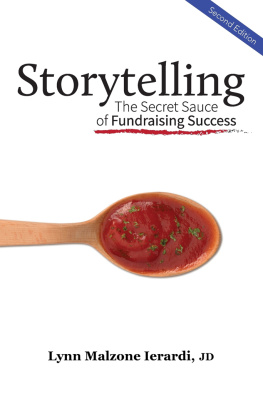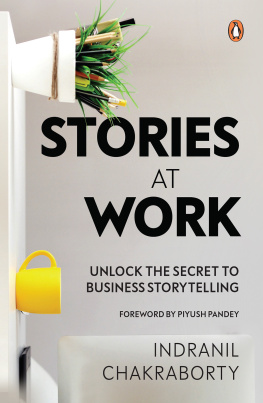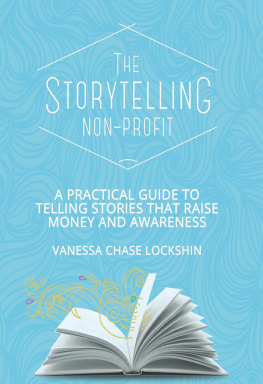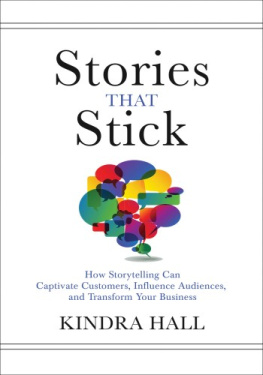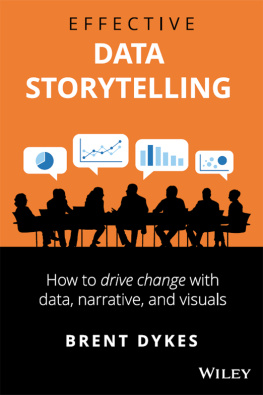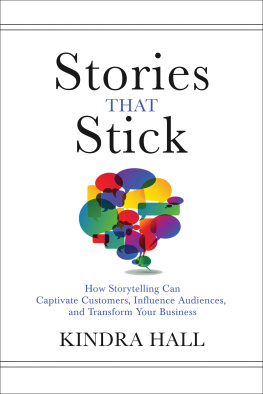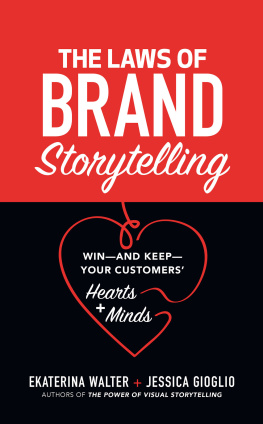EFFECTIVE
STORYTELLING
STEP BY STEP
(2020 EDITION)
Captivate, Engage, and Influence your Audience
O. G. GOAZ
Every effort has been made to trace copyright holders and to obtain their permission for the use of copyright material. The publisher apologizes for any errors or omissions in the above list and would be grateful if notified of any corrections that should be incorporated in future reprints or editions of this book.
osnatgoaz@poprite.co.il
Translated from Hebrew by Nina Luskin
Editing by Robin Marcus and Dr. Mary S. Lederer
Cover by Studio Lilach Gonen
* * *
Copyright 2019 Osnat Goaz
All rights reserved.
ISBN : 978-965-92762-2-6
All the clips featured in the book can be viewed at https://www.poprite.co.il/storytellingebook
Please note that each clip is preceded by a brief explanatory text. For maximum benefit, we strongly suggest that the reader take a few moments to read it before viewing the clip.
All the links were tested prior to publication. If nonetheless you find a link that is faulty or no longer valid, kindly notify us and we will address the problem.
Thank you for reading my book. If you enjoyed it or found it useful, I would be grateful if you would consider leaving a short review on Amazon .
Thank you for your support!
CONTENTS
1 Prologue
O ur lives are filled with stories stories that define us, stories that define our existence. Stories that, time and again, as a matter of course, we tell to ourselves and to people who surround us: at home, in the street, in a social setting, at work. We have all experienced disappointments; we have all experienced success; we all have aspirations, dreams, apprehensions, fears. All these raw materials are at our disposal, the stuff that good stories are made of.
Whether you are a leader seeking to promote an idea, a public speaker hoping to leave a mark on the hearts and minds of your listeners, a business owner or content marketer endeavoring to present the advantages of a product or service remember: If you wish to engage and influence your audience, you must enliven your discourse with stories. And not just any stories, but those that have the power to boost your agenda and to advance the goals and objectives that you have set.
I could tell you about my childhood on the outskirts of Haifa, Israel; about my grandparents home, where I grew up; about my coming into maturity at a restricted military base in the south of Israel, in the middle of nowhere; about my travels to every corner of the world that began on a ship bound for the Far East; about my professional training at a Tel Aviv advertising agency; about my work as a spokeswoman and communications adviser, and my encounters with various public and political figures; about my doctoral thesis, unfinished but not forsaken; and even about my everyday life in Israels capital, Jerusalem.
Yet although, just like you, I have thousands upon thousands of stories to tell, enough to fill reams of paper, the only stories that you will find in the pages of this book are the ones that demonstrate the use of stories as a strategic tool to promote ones agenda, goals, and objectives, in life, at work, and in business.
2 A True Story
O n November 5, 2006, while driving south on a one-way road in the family car, we were hit from the left by a vehicle that had crossed the intersection on a red light. Our car turned around on its axis several times, shot towards a traffic island, and came to a standstill.
I remember these moments well, the moments of the crash. I remember feeling as if time had stopped. I remember my first desperate scream Avi, no! No! No! as if words alone could avert the inevitable. I remember thrusting my arm forward inside the car, as if I had the power to buffer the impact of the crash. I remember lurching out of the car and collapsing on the traffic island; seeing strange people running in my direction my brain registering their movements in slow motion as one of them extricated my daughters from their car seats and brought them to me and that took an eternity. I remember looking them over, from head to toe this time, in fast motion and feeling calmer. The younger, age two, had a nosebleed. The older, age five, had smashed her forehead.
I remember looking inside the car and seeing my husband Avi, his head flat on the steering wheel and blood running down the side of his face, to his jaw. I remember thinking that he was dead. I remember that two paramedics rushed towards me; I saw their mouths move and understood that they were asking me something, but I couldnt understand what. I remember that I had difficulty breathing, that I was placed on a stretcher and had an oxygen mask put over my face, that a policeman approached us and after taking one look at me addressed my older daughter, that she said something in reply, her face contorted with confusion, or was it dread?
I remember how, afterwards, she told me that he had said her father had asked what her and her sisters names were.
I remember the feeling of helplessness as I was lifted into the ambulance, my two daughters seated next to me, crying; how I looked them in the eyes in an attempt to calm them down. I remember that, after more than two hours of tests and X-rays, I finally saw Avi, lying on a bed, fully conscious. That when he recognized me, he launched into a barrage of questions that seemed to me strange and incoherent. I remember that, nevertheless, I answered every one of them in turn. But he asked the same questions again. And again. And again. As if I had not given him any replies at all. I remember that I couldnt understand what was wrong with him and burst out in uncontrollable sobs. I remember how, on coming home just me and my daughters I resolved to go on as usual, no matter what. But I also remember how extremely difficult this turned out to be.
* * *
In a month or so, I went back to work for the first time and handed in my resignation letter. I felt that the family trauma we had all gone through compelled me to do that. That I must be disengaged. Free to take care of myself, to take care of my daughters, to take care of my family. That I could not continue living as if nothing had happed, continue chasing god knows what, day after day. Resume the marathon of life, the hectic routine. Become once more an irritable and busy mother. Take up the same petulant refrain that holding an intensive, full-time job and being a mother is like working two-and-a-half jobs and earning less than three-quarters of one salary. Carry on my back at every given moment a thousand-ton load of guilt.
At that time, I worked as a spokeswoman for the national public authority, and on my head, where an ear was supposed to be, was a cellphone. Attached to my belt was a gnarled beeper. I was one of those career women who believe that if they are not available day and night, holidays and weekends, seven days a week, twenty-four hours a day, anywhere, under any circumstances, the world or at the very least their job would go to pieces.
And then, as if with the flash of a sword everything stopped.
After nearly twenty years of zealously chasing the clock, in a matter of hours I turned into one of those women who seemingly do little other than hang out the wash. Scrub the surfaces in the kitchen and stack the dishwasher. Cook and clean. I became a mother and a housewife a full-time one, too. And so the years passed. Another and another. And another.


